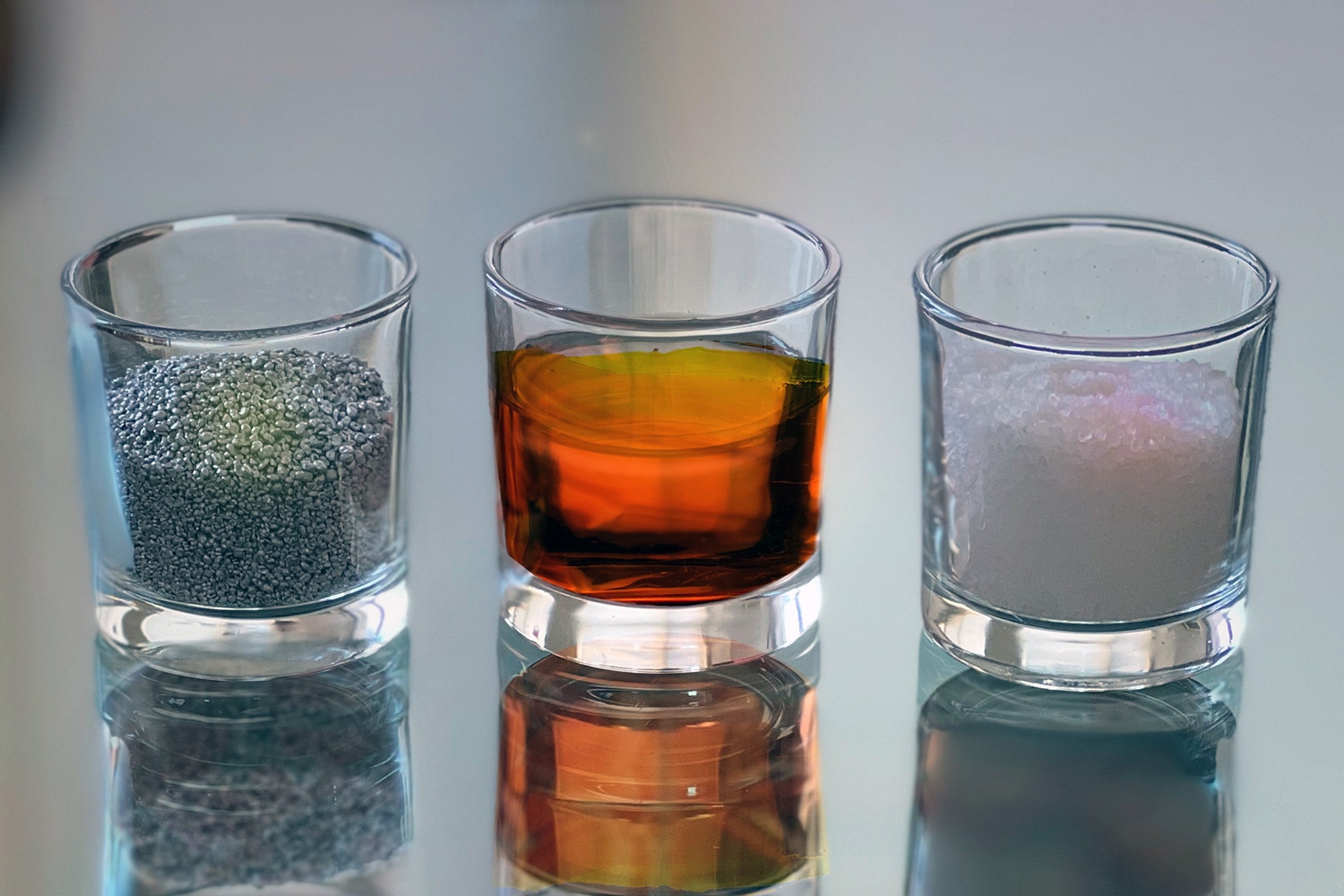
Batteries fitted with a metal negative electrode are attractive for their higher energy density and lower complexity, the latter making them more easily recyclable. However, the threat of cell shorting by dendrites has stalled the deployment of the technology.
Now, researchers at MIT have developed a new kind of battery, made entirely from abundant and inexpensive materials – aluminum, sulfur, and salt, that could help to fill that gap. In addition to being inexpensive, the new battery is resistant to fire and failures and can be charged very fast, which could make it useful for powering a home or charging electric vehicles.
Today’s lithium-ion batteries are still too expensive for most such applications and contain a flammable electrolyte. So researchers started looking for cheap, Earth-abundant metals that might be able to substitute for lithium. After a search and some trial and error, they settled for aluminum and sulfur as its two electrode materials, with an electrolyte of molten chloro-aluminate salt in between. All these ingredients are cheap, readily available, and not flammable, which means there is no risk of fire or explosion.
In tests, the team showed that the new aluminum-sulfur battery cells could endure hundreds of cycles at exceptionally high charging rates, with a projected cost per cell of about one-sixth that of comparable lithium-ion cells. They showed that the charging rate was highly dependent on the working temperature, with 110 degrees Celsius (230 degrees Fahrenheit) showing 25 times faster rates than 25 C (77 F).
The team chose molten salt as an electrolyte simply because its low melting point turned out to have a fortuitous advantage. It is very good at preventing the formation of dendrites, which are narrow spikes of metal that build up on one electrode and eventually grow across to contact the other electrode, causing a short circuit and hampering efficiency.
The chloro-aluminate salt they chose “essentially retired these runaway dendrites, while also allowing for very rapid charging,” says MIT Professor Donald Sadoway, one of the authors of the study describing the design. “We did experiments at very high charging rates, charging in less than a minute, and we never lost cells due to dendrite shorting.”
Importantly, researchers say the aluminum-sulfur battery requires no external heat source to maintain its operating temperature. The heat is naturally produced electrochemically by the charging and discharging of the battery. “As you charge, you generate heat, and that keeps the salt from freezing. And then, when you discharge, it also generates heat,” Sadoway says.
According to the MIT team, the new battery formulation would be ideal for installations of about the size needed to power a single home or small to medium business, producing on the order of a few tens of kilowatt-hours of storage capacity. The smaller scale of the aluminum-sulfur batteries would also make them practical for uses such as electric vehicle charging stations. Other technologies might be more effective, including liquid metal batteries, for larger installations, up to a utility-scale of tens to hundreds of megawatt hours.
The new technology is already the basis for a new spinoff company called Avanti, which has licensed the patents to the system, co-founded by Sadoway. The first order of business for the company is to demonstrate that it works at scale and then subject it to a series of stress tests.
New low-cost aluminum-sulfur battery tech promises fast charging and safety
Source: Tambay News

0 Comments